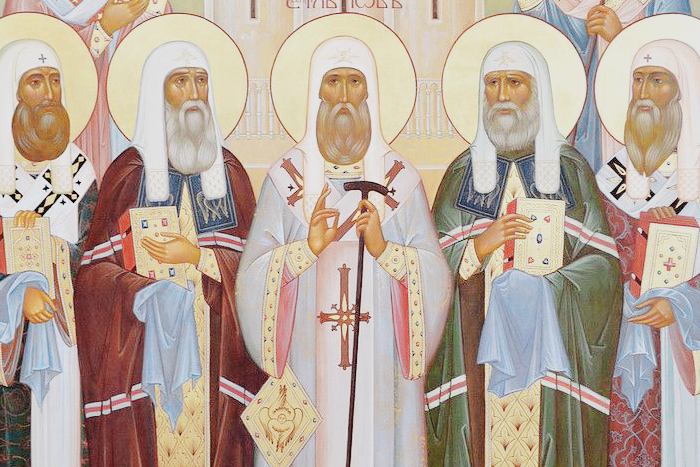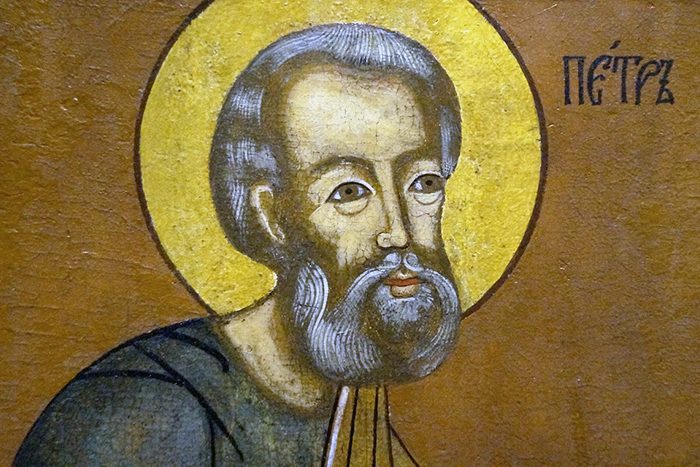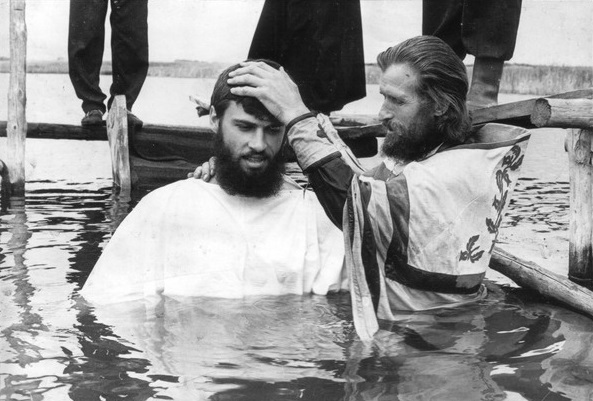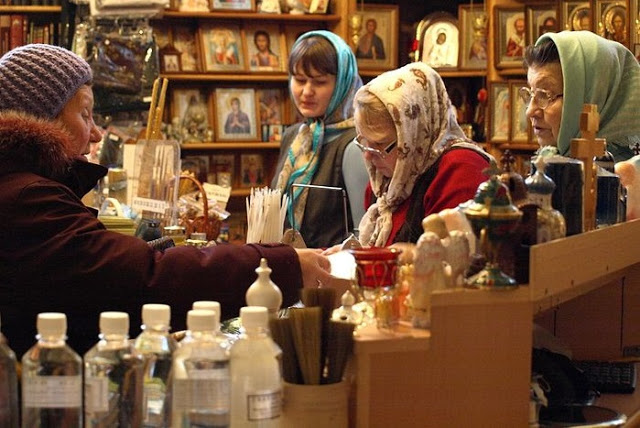
Nina: Hello, Vladimir, I promised one guy I’d give a qualified answer. I ask for your help. Maybe you could ask someone reputable… The question was: “Why is the administration of church life entrusted to monks and not to married clergy?” I could have given this guy a simple explanation as I understand it myself, but there was a little bit of a twist in the question that prevented me from doing so, namely: “What can those monks do? They’re crazy because all they crave for is sex! There is no way to go against nature…” I’m sorry about this question. I promised to send him a response…
Vladimir Gurbolikov: First of all, the administration of the Church does not just include the Synod and dioceses headed by bishops, but also such important institutions as councils, inter-council assemblies, synodal and diocesan departments (some kind of church “departments”).
The councils that elect patriarchs include not only monks, but also married clergy, as well as lay men and women. The Inter-Council Assembly has an equally broad membership, and it makes some extremely important decisions. Finally, many synodal and diocesan departments are now headed by married priests and laymen. Those bodies have a great influence on the management of the Church. This is the first part of my answer.
Now the second argument is about the patriarch and the bishops.
As I understand it, your friend is primarily concerned about them, implying that they have an exclusive role in running the Church. Well, they are not necessarily people who never had any experience of marriage or family life. Along with those who became monks when they were young, many bishops took monastic vows at an advanced age. For example, one of today’s most prominent bishops, Bishop Panteleimon (Shatov), who is now in charge of the social ministry of the Church, was married; his wife died of a severe illness and he raised their children, who are all adults now. Only then did he become a monk and was elevated to the rank of bishop.
Therefore, you should not assume that all bishops do not have experience in marriage. This is a misconception. There have been bishops and even patriarchs who used to be married and had happy families. And of course, each of them has experience of living in their parents’ family, often with many children, so they know how to interact both with parents and with siblings. One shouldn’t think that it doesn’t mean much in a person’s life. We often learn the most important lessons and examples of how to live our lives while we grow.
Now to the third point concerning lustful impulses.
There is no single mental and physical standard: all people are different. We know a lot of cases of cheating among married couples, and even (thank God, it is rare) there are people who committed crimes on this very ground… People are different. I don’t know many monks but I am quite confident with regard to their ability to control their impulses. In addition, these people are in plain sight, and the Church has canons and rules, as well as the concept of spiritual leadership. These factors make it clear in many cases that choosing monasticism is wrong for a particular person.
There is a woman among my friends who once considered becoming a nun, but her priest advised her against it and said that she would meet true love and be happily married. Indeed, that was how it turned out. Obviously, though, it is impossible to foresee any situation and absolutely guarantee that anyone won’t fall into any kind of sin. Let me reiterate that it applies to anyone. Most importantly, we should not judge everyone based on our personal experience. Present-day notions about some exclusive role of sexual life for the mind and health of a person are incredibly exaggerated in popular opinion. I think this is a very convenient background for the shaping of an “ideal consumer” and it is in many ways a feature of a market society.
Finally, the fourth argument.
Why is it that we choose for bishopric only those people who have taken monastic vows? This is because a monk, unlike people who have families, is not bound by any worldly interests and is therefore protected from the temptation to abuse power and money to a greater extent than a secular person. And yet, experience shows that this is not always the case.
One can also point out that there are especially many monks among the saints. This may be attributed to the “radicalism” of monastic vows, the fact that the monk lives in defiance to the modus operandi of this world. This draws particular attention to the exploits of the monks. It is a forthright challenge to the world; it also makes them more able to govern the Church.
Hopefully, a monk will not try to adapt the life of the Church to what is considered the norm in this world, contrary to Christ’s words that my kingdom is not of this world.
I will admit that this does not automatically make monks holier than other Christians or that those who aren’t monks are living in some kind of compromise with sin. No, they don’t. For example, any mother of a big family, if this family lives in happiness, faith and love, must be a saint – even if no one includes her in the acts of canonization and does not proclaim her a saint.
These are different paths to the same goal: a more direct one (which is also steeper) and a smoother, seemingly slower one. We Christians should not be tempted by the fact that everyone is given a unique cross from God. Someone gets to take responsibility for the family, someone gets to heal or protect people, and someone gets to run our Church.
Originally published by FOMA Magazine
Translated by The Catalogue of Good Deeds



